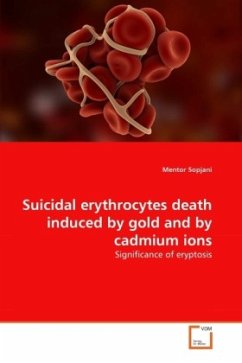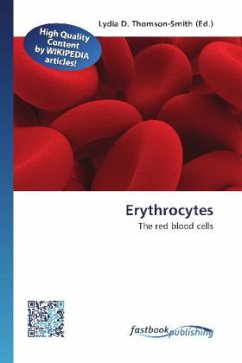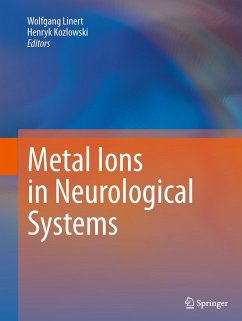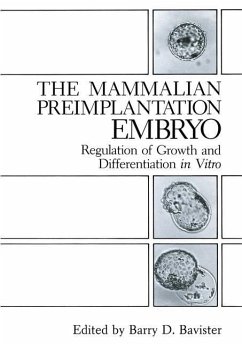
Suicidal erythrocytes death induced by gold and by cadmium ions
Significance of eryptosis
Versandkostenfrei!
Versandfertig in 6-10 Tagen
32,99 €
inkl. MwSt.

PAYBACK Punkte
16 °P sammeln!
The suicidal death of erythrocytes, eryptosis, is characterized by cell shrinkage and cell membrane scrambling leading to phosphatidylserine exposure at the RBCs surface. As macrophages are equipped with phosphatidylserine receptors, they bind, engulf and degrade phosphatidylserine exposing cells; thereby RBCs are rapidly cleared from circulating blood. RBCs cell membrane scrambling is stimulated by increase of cytosolic Ca2+ concentration ([Ca2+](i)) and formation of ceramide. Ca2+ entry and/or ceramide formation and thus eryptosis are triggered by many pollutants. The present study explored ...
The suicidal death of erythrocytes, eryptosis, is characterized by cell shrinkage and cell membrane scrambling leading to phosphatidylserine exposure at the RBCs surface. As macrophages are equipped with phosphatidylserine receptors, they bind, engulf and degrade phosphatidylserine exposing cells; thereby RBCs are rapidly cleared from circulating blood. RBCs cell membrane scrambling is stimulated by increase of cytosolic Ca2+ concentration ([Ca2+](i)) and formation of ceramide. Ca2+ entry and/or ceramide formation and thus eryptosis are triggered by many pollutants. The present study explored whether eryptosis could be similarly triggered by exposure to gold, and to cadmium. To this end, RBCs from healthy volunteers were exposed to AuCl and to cadmium ions (Cd(2+)) and phosphatidylserine exposure (annexin V binding), cell volume (forward scatter), [Ca2+](i) (Fluo3-dependent fluorescence), and ceramide formation (anti-ceramide-FITC fluorescence) were determined by flow cytometry. The present observations underlie the mechanism of action of cadmium ions, and disclose a novel action of gold, which may well contribute to side effects during treatment with gold preparations.












